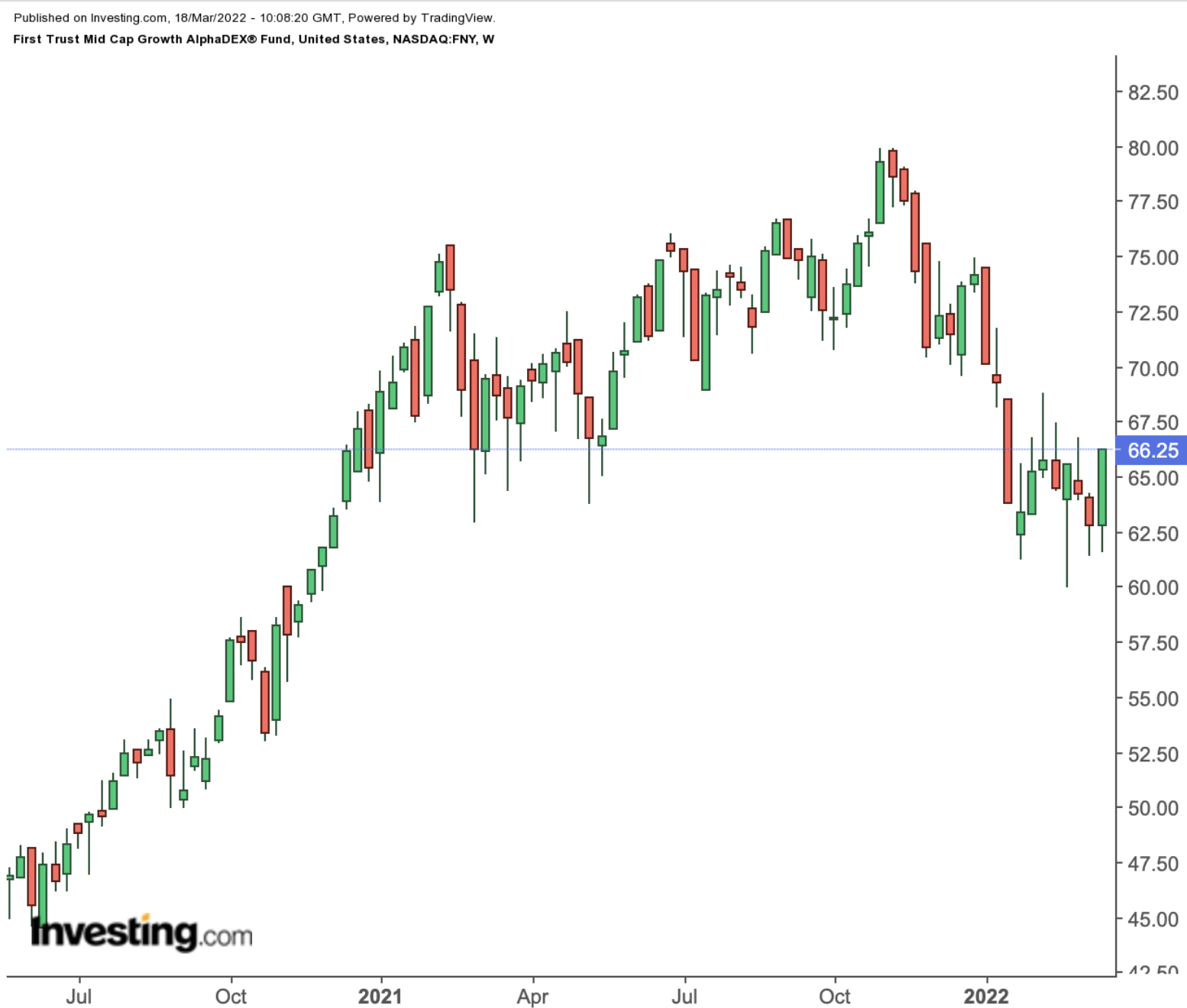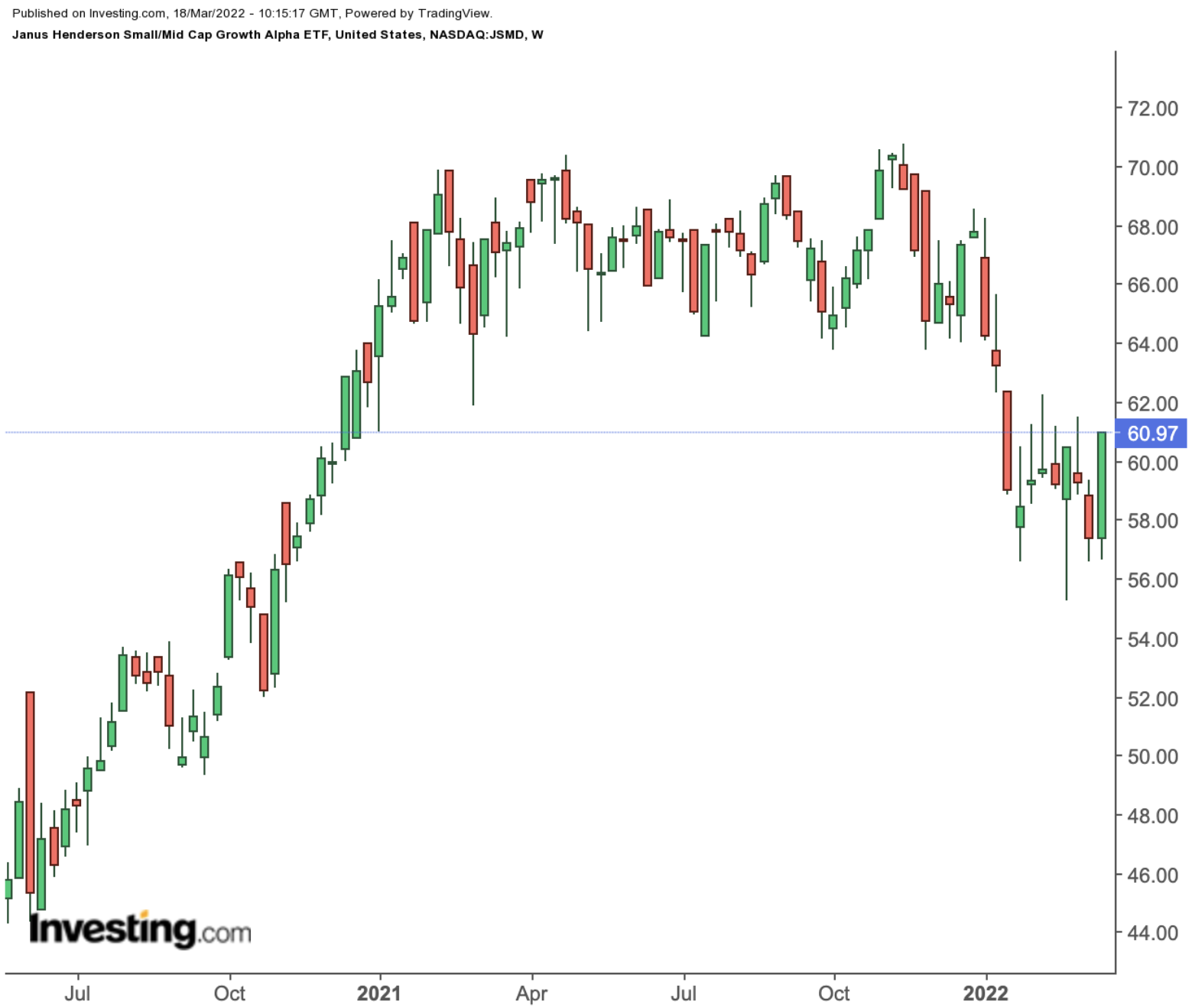December boom: Where to find the highest returns
The recent broad market slump has been particularly harsh on small- and mid-capitalization (cap) stocks. But as Wall Street attempts a rebound after the Fed's 25bp interest rate hike, investors may start looking at these companies' beaten-down valuations for buying opportunities.
With a market cap under $2 billion, small-cap companies typically offer more significant upside potential than mid-cap companies with market caps between $2 billion and $10 billion. Meanwhile, mid-cap stocks are generally less volatile than small caps.
Many investors look at small- and mid-cap companies to find rising stars that can give massive returns to their shareholders. In addition, many small- and mid-cap names become takeovers targets, leading to share price gains.
Today's article introduces two exchange-traded funds (ETFs) that could appeal to those wishing to diversify their portfolios by looking beyond the large-cap space. Understandably, a firm's capitalization is ever-shifting as share prices move constantly. Therefore, a small-cap ETF could easily hold mid-cap stocks as well.
1. First Trust Mid Cap Growth AlphaDEX Fund
- Current price: $66.25
- 52-week range: $59.92 - $79.92
- Expense ratio: 0.70 per year
First on today's list is the First Trust Mid Cap Growth AlphaDEX® Fund (NASDAQ:FNY), which invests in mid-cap growth stocks selected from the NASDAQ US 600 Mid Cap Growth Index. The growth factors used in this selection are sales growth, price appreciation, and sales-to-price ratios.

FNY tracks the NASDAQ AlphaDEX Mid Cap Growth Index, rebalanced quarterly. The fund was first listed in April 2011 and currently comprises 223 stocks.
Over 10% of net assets of $312.1 million are in the top 10 companies. Health care names have the highest slice with 15.98%. Next come IT (14.50%), industrial (13.93%), consumer discretionary (13.60%) and financials (12.48%) among others.
Leading holdings include the energy names Antero Resources (NYSE:AR), APA (NASDAQ:APA), Ovintiv (NYSE:OVV); midstream infrastructure group Targa Resources (NYSE:TRGP); aluminum producer Alcoa (NYSE:AA); and chemical and ingredients distributor Univar Solutions (NYSE:UNVR).
FNY hit a record high in November 2021. However, it is down 10.7% year-to-date and 5% in the past 12 months.
Trailing P/E and P/B ratios are 18.21x and 4.09x respectively. We believe the recent decline in many of the holdings in the fund means a better risk/return profile for long-term investors.
2. Janus Henderson Small/Mid Cap Growth Alpha ETF
- Current price: $60.97
- 52-week range: $55.27 – $70.78
- Dividend yield: 0.32%
- Expense ratio: 0.30% per year
Today's second fund is the Janus Henderson Small/Mid Cap Growth Alpha ETF (NASDAQ:JSMD). It invests in small- and mid-cap businesses with solid fundamentals and revenue growth and profitability potential. The fund started trading in February 2016.

JSMD, which has 265 holdings, tracks the Janus Henderson Small/Mid Cap Growth Alpha Index. The top 10 stocks comprise close to a fifth of net assets of over $161 million.
In terms of sectoral allocation, we see information technology (32.08%), health care (22.52%), industrials (13.37%), and consumer discretionary (11.54%)
Virtualization technology name VMware (NYSE:VMW); molecular diagnostics company Qiagen (NYSE:QGEN); Ubiquiti Networks (NYSE:UI), which manufactures wireless data communication products; Chemed (NYSE:CHE), which operates different lines of profitable businesses; and agriscience firm FMC (NYSE:FMC) lead the names on the roster.
JSMD also saw an all-time high in November 2021. However, the fund is down about 10.5% in the past 12 months, and almost all that decline came in 2022.
Forward P/E and P/B ratios are 19.95x and 6.04x, respectively. Buy-and-hold investors could consider hitting the 'buy' button around these levels.
